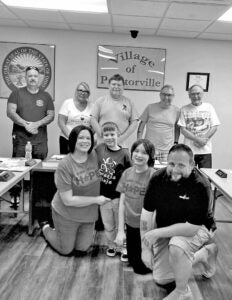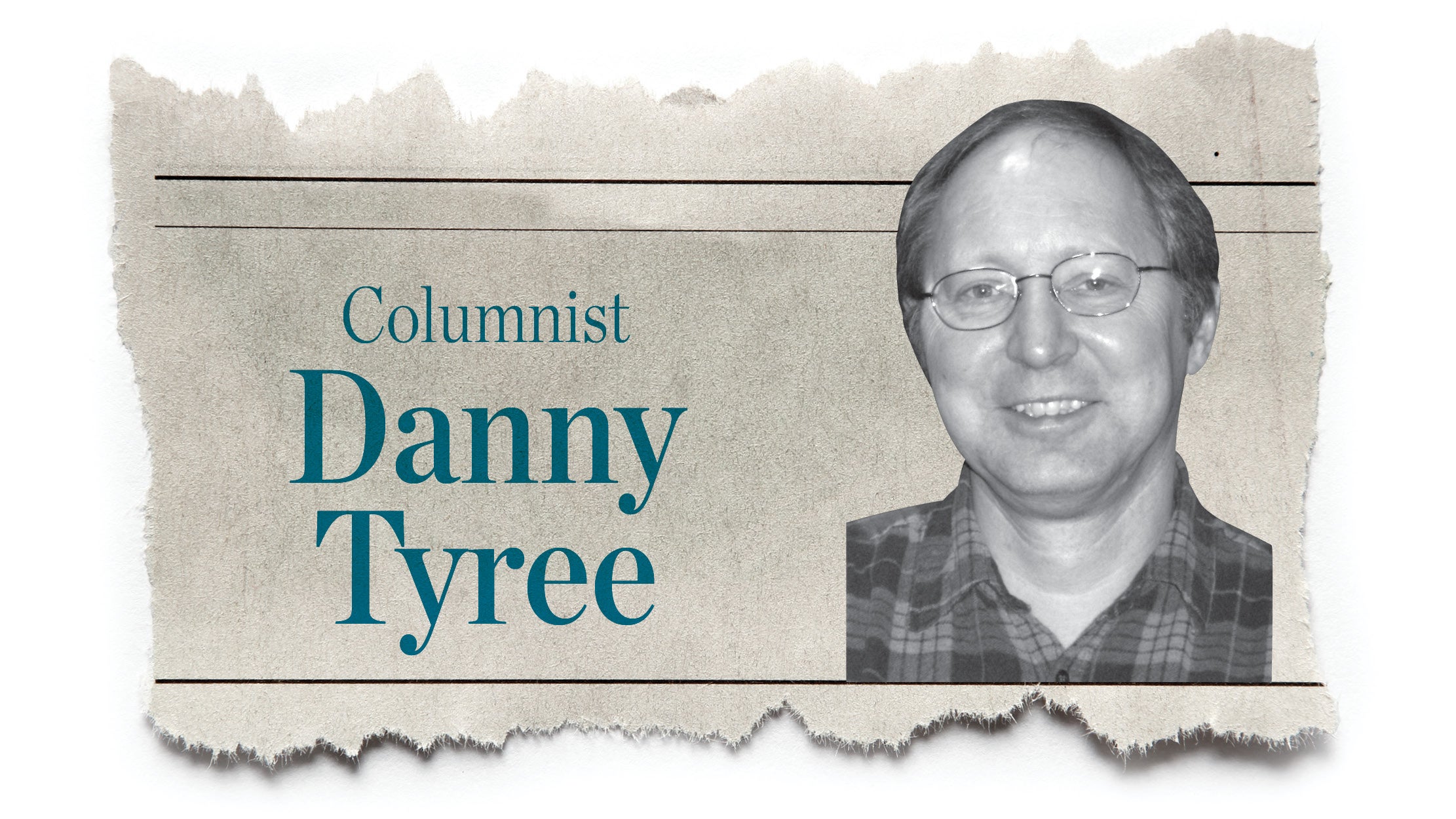April Black: Facing the challenges of apraxia as a parent
Published 12:00 am Saturday, April 27, 2024
May 14 is Apraxia Awareness Day in Proctorville and across our nation.
I am the parent of an 8-year-old child with apraxia named Benjamin and a staff member for Apraxia Kids, the leading nonprofit organization dedicated to strengthening the support systems in the lives of children with apraxia of speech.
We work to educate professionals and families, facilitate community engagement and outreach, and invest in the future through advocacy and research.

Proctorville Mayor Bill Elliott, along with city council members, poses with Benji Black and his family. The mayor issued a proclamation declaring May 14 as Apraxia Awareness Day for Proctorville. (Submitted photo)
Perhaps this is the first time you have heard the term apraxia or maybe you know someone personally with this diagnosis.
For those unfamiliar, apraxia is a neurologically-based motor planning disorder. Essentially, the brain knows what it wants to say or do, but somewhere between the brain and the muscles needed for movement, the message gets jumbled or lost all together. It can affect a person’s ability to speak as well as to coordinate fine and gross motor muscles. When it affects coordination, it is called Developmental Coordination Disorder. When it affects speech, it is called Childhood Apraxia of Speech or CAS for short. CAS can exist alone, but more often, it co-exists with other communication disorders and/or with other co-morbidities such as the developmental coordination disorder I mentioned, dysgraphia, ADHD and autism.
Childhood Apraxia of Speech is considered a rare disorder. It is believed to affect one out of every 1,000 children although I suspect this number could be greater. Unfortunately, there is a limited amount of research available on it. CAS is among the most severe speech deficits a child can face. Those with the diagnosis require early, appropriate, and intensive speech therapy. Sadly, not every child will get the therapy they need.
What is considered early treatment? The sooner a child with suspected childhood apraxia of speech can start treatment, the better. Brain development during the first five years of life is known to be the most crucial for any individual as pathways and connections are being created. Research demonstrates that the earlier treatment begins, the better the outcomes are for the individual receiving treatment. Therefore, awareness is key!
What is considered appropriate treatment? Treatment for CAS follows the principles of motor learning; therefore, it is very important that a child receives speech therapy from a speech-language pathologist who has received specialized training in the treatment of apraxia. This can be very difficult to find, especially in our area of Appalachia. Therefore, further education for speech-language pathologists in the treatment of apraxia is also key to better outcomes!
What is considered intensive treatment? Current research suggests that an individual should receive speech therapy 4-5, 30-minute sessions per week. That’s 2-2½ hours per week! While other typical developing peers are pursuing things like sports and other extracurriculars, children with apraxia spend a lot of their time learning to speak, something that comes easy for most of us. You might have to think about what you want to say, but an individual with apraxia has to not only think about what they want to say but HOW to say it.
Benji’s story
I’d like to tell you a little bit about Benji’s journey with apraxia. Benji was born my fifth child. By the time he came along, I was a bit of a veteran mom. After all, my oldest child was 21 years old at the time. But as Benji began developing, I noticed something was a little off when he was about seven or eight months old. It took him longer to learn to crawl and A LOT longer to learn to walk than his siblings.
Now, I understand it was due to his motor planning struggles.
My biggest concern, though, was that he wasn’t making the sounds he should be making. OK, he just needed some early intervention with a Birth to Three program and he’d catch up. After a year of making no progress, I knew there was something more serious at play.
At his 24 month well-child visit with our awesome pediatrician, Dr. Jay Naegele, a referral was made for a speech evaluation.
At 25 months old, we were told by the evaluating speech therapist, “I think Benji has apraxia.” Oh, I thought. He’s got a speech delay with an actual name and with weekly speech services, he’ll catch up to his peers by preschool. After all, several of Benji’s siblings had been speech delayed. Unfortunately, I would learn, this was not just a speech delay, and this is where Benji would start the speech therapy portion of his apraxia journey and his fight to communicate and be understood. CAS will never fully go away, but Benji has made so much progress.
Benji currently receives in-person speech services at Milestones clinic in Huntington for an hour and a half each week, a half hour after school on Wednesdays and an hour on Thursday mornings. Benji also receives an hour of virtual speech services over the computer Mondays for an hour after school and Fridays for an hour with a speech-language pathologist who specializes in the treatment of apraxia. That is 3½ hours a week that he devotes to fighting for his voice! Plus, he receives occupational therapy services to help with his coordination issues for an hour every other week. Sometimes he has to miss out on educational opportunities or fun activities in the classroom because of this, which, quite frankly, stinks because children with CAS are at a higher risk for literacy/reading/spelling/writing difficulties and they just want to have fun, too!
While apraxia is one characteristic that makes Benji who he is, just like his cute smile, his love of all things space and geography, or his sense of humor, it doesn’t define who he is, and it’s certainly not a reflection of his intelligence. In fact, a person’s inability to speak does not determine their intelligence and children with apraxia are often quite intelligent!
And while apraxia has many challenges, it isn’t all doom and gloom either. Whether Benji realizes it or not, his apraxia is also doing good things for him, too. It is helping him become someone who is brave enough to face hard things, someone who will know that anything worth having will require perseverance and hard work, someone who is learning how to handle frustration and build patience.
And, hopefully, it is helping him become someone who is kinder and someone who will stand up for others.
— April Black is a Proctorville resident.





